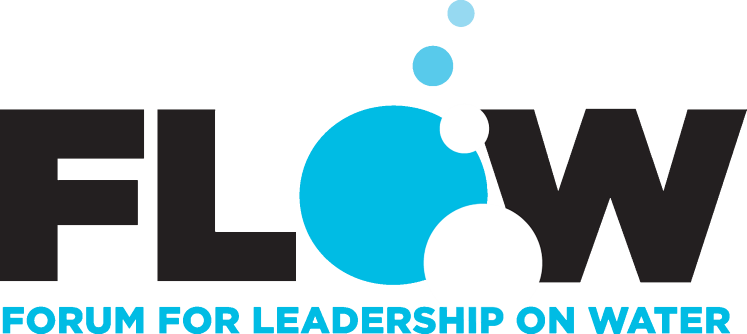Governance: The Enabling Environment to Foster Water Innovation
Richard Farthing Nichol
Originally posted in Water Science Policy (now OneWater) | August 2023
Governance systems play an important role in enabling the innovations needed to adapt and transform to an increasingly water insecure world.
The governance seminar at World Water Week 2023 aims to move the needle on water decision making by examining key questions and sparking action.
The seminar is comprised of three sessions that focus on catalytic communities, innovation readiness, and transboundary water governance.
The intensifying impacts of climate change, layered on top of the tremendous stress on available water resources caused by human development, has created unprecedented uncertainty around water quality and quantity across the globe.
Yet while the urgency of ensuring clean, accessible water for present and future generations and ecosystems is a universal challenge, there is no universal prescription. Water is an incredibly complex resource that presents wicked problems shaped by both ecological forces and the human systems – social, economic, cultural, and political – that mediate our interactions with water.
These complex, interconnected systems comprise the building blocks of water governance – processes, decision making practices, and outcomes at different levels of a country’s public administration, as well as arrangements in civil society and the corporate field. Everything we do that affects water, good and bad, is nested within governance paradigms that dictate how water management decisions are made.
As we look towards an increasingly water insecure and uncertain future, we must ask ourselves: how can we rethink water governance to enable innovation, implement creative solutions at scale, and better integrate multi-sectoral perspectives and a plurality of values? How can we ensure that our governance systems remain nimble and adaptive to match the range of uncertainties we face?
These are the big questions at the heart of Governance: The enabling environment to foster innovation, one of seven seminars organized as part of SIWI World Water Week, held August 20-24, 2023 in Stockholm (and available for free online).
The governance seminar is comprised of three sessions that will each examine a different water governance theme. While the subject matter is diverse, these sessions are all linked by their focus on the ways in which governance systems can enable and scale the innovation that is needed to meaningfully address challenges in an increasingly fragile world.
The first session (August 20, 14:00-15:30pm CET), co-convened by Water Foundry, focuses on the role of the private sector in enabling innovation through a new model of collaboration called ‘catalytic communities’. Such communities move beyond decision making models based on collective action by focusing on strategic partnerships that can scale innovation and achieve systems change.
Catalytic communities prioritize action through co-creation and learning. They could include, for instance, a network of partnerships between multinational corporations and entrepreneurs that leverage the reach and resources of the former to support testing and scaling innovations proposed by the latter. Or it might mean bringing business leaders, investors, and policy makers together to co-design institutional changes that can better enable investment in water innovations.
The session brings together leaders who are at the cutting edge of redefining collaboration in the water sector and beyond, and welcomes anyone interested in discussing the implications of catalytic communities for innovations in corporate governance and public policy.
The second session (August 21, 11:00-12:30 CET), co-convened by the IHE Delft Institute for Water Education, continues the discussion by delving deeper into the idea of innovation readiness. Readiness for water innovation is often characterized by technology readiness levels – an important consideration but just one part of the equation. Other important factors are institutional and investment readiness.
For instance, a new device for monitoring water quality may function perfectly well from a technological standpoint, but it cannot be brought to scale without a supportive regulatory and policy environment, clarity for investors around the distribution of risks and benefits, supply chain certainty, and other non-technological metrics.
This session looks at a range of different elements associated with innovation readiness, with case studies drawn from such areas as community adoption of new technologies to large scale risk governance frameworks. It will focus on nature-based solutions as an area in which innovation in water governance needs to take place.
The third session (August 22, 19:00-20:00 CET, online only), co-convened by the International Water Management Institute, looks at complexities related to innovation in transboundary water governance. A single river basin can encompass a diversity of actors and institutions across different scales, jurisdictions, cultures, and socio-economic systems.
Yet traditionally much of this complexity has been lost within the field of transboundary governance due to a focus on allocation of water – i.e., the quantitative aspects, much at the expense of water quality matters – and on relationships between states that minimizes important cross-sectoral dynamics. These dynamics include ecological considerations, such as transboundary wetlands and the freshwater-marine interface, as well as the nexus between different knowledge, decision-making and formal/informal cooperation paradigms.
Enabling innovation in transboundary governance requires us to embrace this complexity. It also requires us to think about transboundary governance beyond water quantity and urges us to properly integrate considerations around the pollution of transboundary water resources. This session will bring together a diverse range of perspectives to address these topics.
The SIWI World Water Week governance seminar, made up of these three sessions, is one critical part of a much broader discussion about seeding innovation. But our metric of success is not whether we can host interesting conversations. Our hope is that these events contribute to sparking tangible change by inspiring action, kickstarting partnerships, and encouraging a break from status quo in water governance regimes.
Richard Farthing-Nichol is a project manager at the Centre for Indigenous Environmental Resources.

